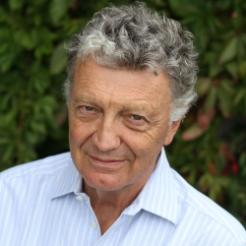Acevo has called for William Shawcross, chair of the Charity Commission to explain why he urged a Commission trustee to meet with the Institute of Economic Affairs, a think tank which lobbies against charitable advocacy.
Sir Stephen Bubb, chief executive of Acevo - the infrastructure body for charity leaders - said that failure to do so would be a “dereliction of duty” on the part of the regulator.
He was speaking following the emergence of correspondence between William Shawcross, chair of the Charity Commission (pictured), Gwythian Prins, a trustee of the regulator and Christopher Snowdon, head of lifestyle economics at the Institute of Economic Affairs.
The correspondence was first reported in yesterday's Observer.
“The redacted communications raise a number of questions which must be answered immediately," Bubb said. "First, why did Mr Shawcross direct Mr Prins to engage with this particular think tank? Secondly, what was the content of the conversation between Gwythian Prins and Christopher Snowden? And finally, what is the position now held by Mr Shawcross and Mr Prins regarding the anti-advocacy clause?”
“To be either indifferent to or ignorant of the harm this clause is already causing, and the self-censorship it is already engendering in our sector, would be a dereliction of duty on the part of the regulator’s highest officers,” continued Bubb. “Charity leaders, volunteers and workers deserve answers.”
Observer story
The story published over the weekend by the Observer accused Shawcross of “actively helping a leading critic of charities who inspired a controversial new law curbing their activities.”
In emails obtained under the Freedom of Information Act, the Observer said that Shawcross encouraged Prins to write to Snowdon on 7 May 2013, just before he joined the regulator’s board: “Dear Mr Snowdon, the chairman of the Charity Commission, upon whose board I shall shortly start to serve, has asked me to talk to you about matters of mutual interest. I shall be happy to do so… this issue is no flash in the pan.”
According to the Observer, Prins subsequently agreed to meet with Snowdon, who then sent “a copy of a follow up report he wrote for the IEA about charities and lobbying” that proved to be “crucial in determining government opinion.”
On 6 February 2016, the government announced that charities in receipt of government grants would be banned from using that money to lobby government, parliament, local MPs or the regulator. The government cited the “extensive research” done by the IEA and Snowdon.
Bubb also said that the sector should be “shocked” that Shawcross has effectively been “active and complicit in creating” the ‘anti-advocacy clause’.
“Charity leaders, workers and volunteers will be shocked and alarmed by these revelations,” Bubb said. “It is clear that Charity Commission board members, directed by the chair, William Shawcross, have been active and complicit in creating it alongside the Institute for Economic Affairs.”
A spokesman for the NCVO said that it has “raised concerns with the Cabinet Office and the prime minister about the clause” but is still waiting for a response.
A spokesman for the Charity Commission said: “To be clear the Charity Commission did not call for, and was not consulted upon, the policy announced by the government on 6 February 2016, nor was it involved in its development.
"The Commission regularly meets with charities and those involved with the sector, for example the NCVO. This is a vital part of to being a modern, effective, outward looking regulator. The meeting in question was part of the Commission’s process of keeping abreast of discussion and events in the sector."









